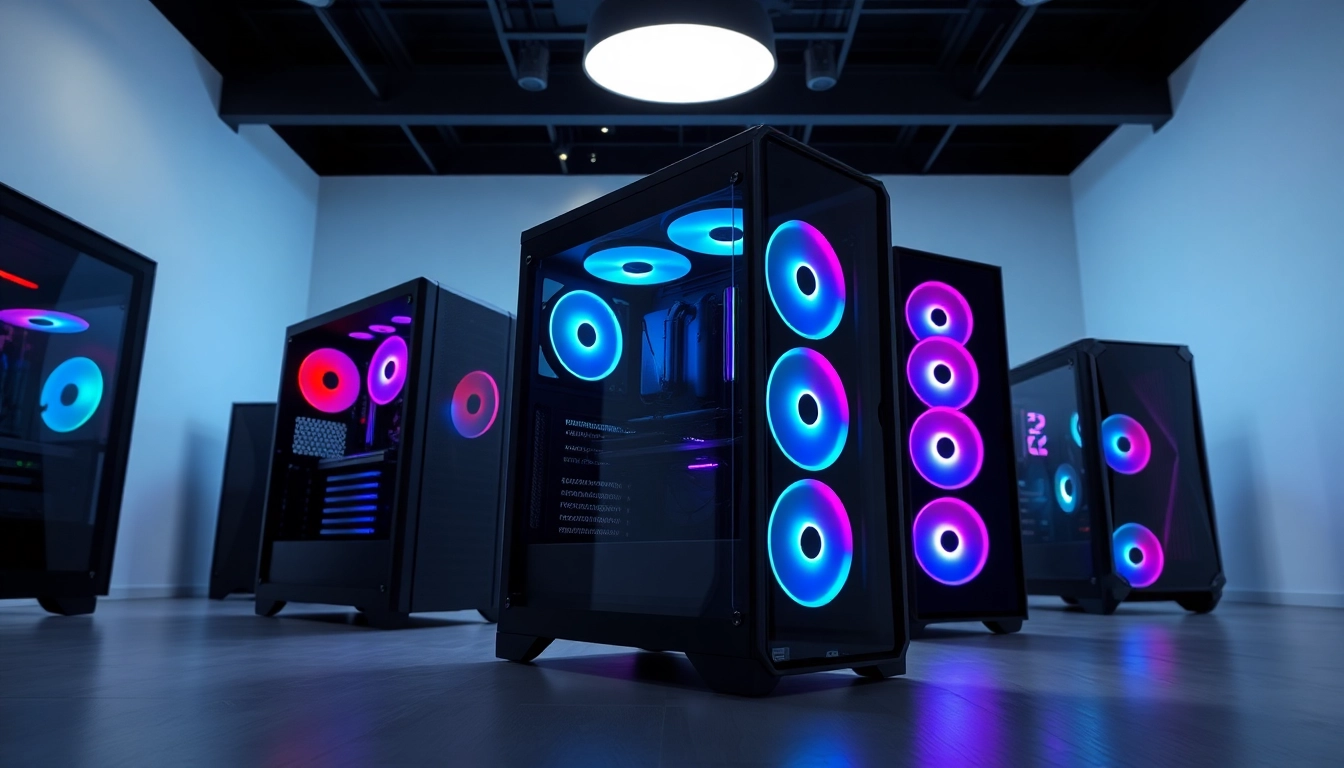Understanding Gaming Laptop Specifications
When it comes to purchasing a gaming laptop, understanding the specifications is paramount to ensure that you select a device that meets your gaming needs. The Gaming Laptop market is vibrant and ever-evolving, making it essential to grasp the key components that contribute to a laptop’s performance.
Key Performance Metrics
Before diving into the intricate world of gaming laptops, it’s imperative to understand performance metrics such as frame rates, graphical fidelity, and system responsiveness. A gaming laptop’s capability is often expressed through its ability to handle demanding games at higher settings, which usually translates to a smoother and more immersive gaming experience.
Importance of GPU and CPU
The central processing unit (CPU) and graphics processing unit (GPU) are the heart of any gaming laptop. The CPU manages all the computational tasks and decides how fast your laptop can process data, while the GPU is critical for rendering graphics. A robust GPU is essential for complex visuals, higher resolutions, and smoother frame rates, making it a non-negotiable element for gaming enthusiasts. Depending on the games you wish to play, investing in a laptop with a dedicated GPU, such as those from recent NVIDIA or AMD series, can make a significant difference.
RAM and Storage Considerations
Random Access Memory (RAM) is another key specification to consider. For modern gaming, 16GB of RAM is generally recommended, although 32GB may be beneficial for more demanding applications and multitasking. Storage options, mainly whether to choose solid-state drives (SSDs) or traditional hard disk drives (HDDs), also play a significant role. SSDs provide faster load times, which can be a game-changer in competitive gaming scenarios. Thus, a combination of SSD for the OS and frequently played games, alongside an HDD for additional storage, is often the smartest choice.
Choosing the Right Display for Your Gaming Laptop
The display on a gaming laptop greatly affects the overall gaming experience. A high-quality screen can enhance graphics, immersion, and gameplay fluidity, making it a crucial factor in your purchase decision.
Resolution and Refresh Rates
When selecting a gaming laptop, consider the resolution and refresh rate of its display. Higher resolutions like 1080p (Full HD), 1440p (QHD), and even 4K are becoming more popular, offering stunning visual clarity. Additionally, a higher refresh rate (at least 120Hz) can offer a smoother experience, especially in fast-paced games, where every frame counts.
Screen Size: A Gamer’s Perspective
Screen size is also a factor that can enhance or hinder your gaming experience. Generally, a screen between 15.6 and 17.3 inches is considered ideal, balancing usability and immersion. However, portability should also be taken into account; larger screens may not be as convenient for travel.
Panel Types Explained
Different types of screens offer varied experiences. IPS (In-Plane Switching) panels provide better color accuracy and wider viewing angles, while TN (Twisted Nematic) panels generally have faster response times. Exploring your gaming habits can help determine the right panel type, optimizing your performance needs versus visual quality.
Essential Features in a Gaming Laptop
Besides raw specifications, there are several features that can significantly improve your gaming experience. Understanding these features can help you make a more informed decision when buying your gaming laptop.
Keyboard and Touchpad Quality
A high-quality keyboard is vital for gamers, particularly for those who play competitive titles. Look for laptops with mechanical keyboards and customizable RGB lighting to enhance both style and function. The touchpad’s responsiveness and the placement of the keys are also important factors that shouldn’t be overlooked.
Cooling System Efficiency
The cooling system within a gaming laptop plays a crucial role in maintaining performance during intense gaming sessions. An effective cooling solution prevents thermal throttling, which can occur when the laptop overheats, resulting in performance drops. Consider laptops designed to handle heat efficiently with multiple fans and improved ventilation.
Battery Life and Portability
Gaming laptops have a reputation for short battery life, but advancements in technology are improving this aspect. It’s important to look for a balance between performance and battery longevity, particularly if you plan on gaming while on the go. Laptops that offer decent battery life, alongside being lightweight and portable, can fulfill the needs of modern gamers.
Popular Trends in Gaming Laptop Design
The aesthetics of gaming laptops have evolved, and today’s models are often as striking as they are powerful. Several trends have emerged to appeal to the gamer audience.
RGB Lighting and Aesthetics
RGB lighting has become a significant feature in gaming laptops, allowing users to customize their devices according to personal tastes. It not only enhances the visual appeal of the laptop but also indicates modes and performance states. Moreover, sleek designs and quality materials contribute to a more sophisticated and immersive gaming environment.
Chassis and Build Quality
When investing in a gaming laptop, the chassis and overall build quality are also important. A durable build ensures longevity and the ability to withstand the rigors of travel without compromising performance. Premium materials not only improve resilience but often contribute to better thermal management.
Weight and Form Factor Considerations
The weight and design of your gaming laptop can impact two main areas: portability and cooling efficiency. Heavier models often have advanced cooling systems but are less travel-friendly. Slimmer models may compromise cooling for portability; consider your habits and preferences when choosing the right form factor.
Cost vs. Performance in Gaming Laptops
Understanding the relationship between cost and performance is crucial when selecting the right gaming laptop for your needs. With various options available in different price ranges, knowing where to invest is essential.
How to Budget for Your Gaming Laptop
Setting a budget before diving into the shopping process can help narrow down options and prevent overspending. Determine not only how much you can afford but also how much performance is crucial for your gaming preferences. Prioritize features that matter most to you, whether that is better graphics, a higher refresh rate, or superior battery life.
Understanding Price Categories
Gaming laptops generally fall into several price categories, such as budget, mid-range, and premium. Budget models may suffice for casual games, while mid-range options typically offer better performance for serious gamers. Premium laptops come with top-notch specifications and features but come at a hefty price premium. Understanding these categories helps guide your decision-making process.
When to Invest vs. When to Settle
Knowing when to invest in high-end features and specifications is vital. If you are a professional gamer or someone who relies heavily on gaming for competitive reasons, investing in a premium laptop is justified. On the other hand, if gaming is a hobby, settling for a mid-range model that meets your needs can be more economical without sacrificing too much performance.



